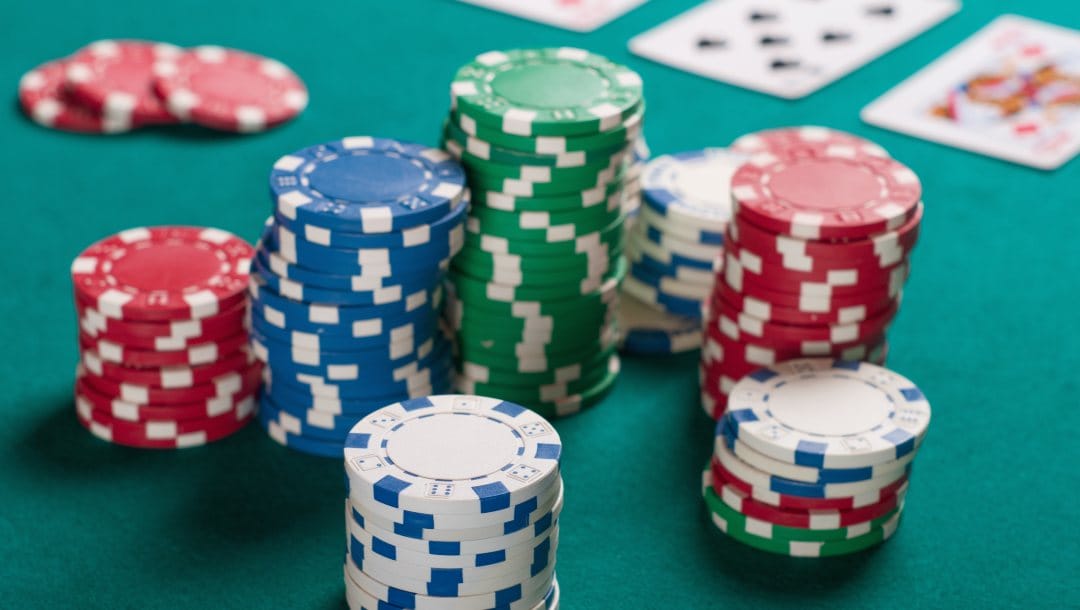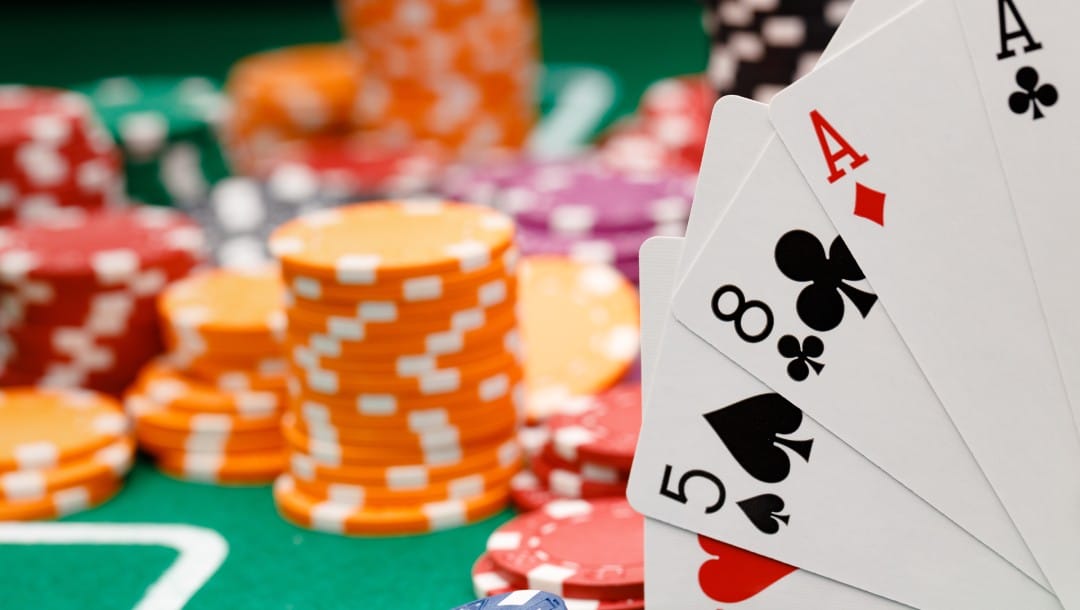
To the casual observer, poker is poker. Players have cards and chips or money, something to bet with.
When a person decides to play poker online for the first time, they find that there are choices. The first set of options they often encounter is what kind of poker to play: poker cash games or tournaments. BetMGM Poker offers both and is active in New Jersey, Pennsylvania, and Michigan.
People often see tournaments on television, on ESPN or Fox Sports, with commentators explaining the action and concluding with a player surrounded by piles of cash, holding a trophy, and celebrating a big win.
Real cash poker games are very different, but they are the most common form of poker in casinos, card rooms, and home poker games.
What Is a Cash Game in Poker?

A cash poker game is one in which the player buys chips that represent real dollar amounts. The player sits at a table with other players. There can be three or four and up to nine or 10 players at a single table, and they are all there to play the same game at the same blind levels.
The game can be Limit Hold’em, No Limit Hold’em, Pot Limit Omaha, or any other game variation, or even a mix of games, in higher stakes settings.
The blinds can be $1/$2 or $4/$8, for example, in Limit Hold’em, or $1/$2 or $2/$5 in Limit Hold’em. Larger poker rooms can have many more options.
The amount of money bet, called, and raised is done with chips, but those chips represent the dollar amounts printed on them. (In poker tournaments, on the other hand, this is not the case.) When a player sits down with $100, they will have various denominations of chips that add up to $100. And when they leave the game whenever they choose, they exchange the chips – plus or minus money they won or lost in the game – at the cashier for cash.
Key Terms in Poker Cash Games
A player must be able to answer one prominent question when they enter a poker room or visit a cash game lobby in an online poker room: what game do you want to play? Decide the game (Limit Hold’em offers capped betting, whereas No Limit Hold’em provides more betting freedom.) and the stakes ($1/$2, $2/$5, etc..)
There are certain terms that players should know before playing in a cash game.
- Bankroll: This is the money a player sets aside to play with. It’s critically important to understand bankroll management for poker tournaments and cash games.
- Blinds: Poker blinds are the forced bets that force action in the game. The onus of the small blind is on the player to the left of the dealer button, and the big blind is for the next person to the left. The player to the left of the big blind is the first to act post-flop. The blinds then rotate by one position, clockwise, after every hand. For example, a $1/$2 game indicates a $1 small blind and $2 big blind.
- Buy-in: A poker buy-in for a cash game is the amount of money a player invests in chips to start the game. There may be a minimum or maximum on the game to keep players at the same level, relatively speaking.
- Hole cards: These are the two cards that players receive face-down from the dealer to start the hand.
- Rake: Poker rake is the amount of money taken from the pot for the casino’s services.
- Ring game: This is another term for a cash game.
- Showdown: If more than one player remains after all betting is complete, the players show their hole cards to determine the best hand.
- Streets: The community cards on the board have alternative names, as the flop is third street, turn is fourth street, and river card is fifth street.
Poker Table Positions

There are also names for many of the positions at the table. Opponents may refer to them during play, so it’s smart to understand the meanings.
- Dealer or button: the person with the dealer button, last to act post-flop
- Small blind: the person just to the left of the dealer button
- Big blind: the person to the left of the small blind, last to act preflop
- Under the gun or UTG: the person to the left of the big blind, first to act preflop
- UTG+1: the person to the left of the UTG player, second to act preflop
- Cutoff: the player just to the right of the dealer button
- Hijack: the person to the right of the cutoff
- Lojack: the person to the right of the hijack
Tips for First-Time Cash Game Poker Players
Cash poker games always operate clockwise. And the seat numbers begin to the left of the dealer. The “one seat” is the one just to the dealer’s left, and the numbers then increase clockwise, with the eight, nine, or 10 seat (depending on how many players are at the table) just to the right of the dealer.
In online poker games and home games, there may not be an official dealer. In this case, seat numbers may not be necessary.
First-time players may want to buy in for more than the minimum required. For example, if a $1/$2 No Limit Hold’em game has a $100 minimum and $300 maximum, it might be wise to buy in for $150 or $200.
The most important thing to know is that a player can always ask questions. In a live poker setting, the floor person or dealer can answer questions, and most fellow players are likely to want to help as well. To avoid being obvious about new-player status, a quiet inquiry to a floor person is the best bet.
In online poker, the search bar on any web portal can be helpful. BetMGM Poker also provides tips and instructions to help players find their way, including a handy beginner’s guide to poker cash games.
Play Online Poker with BetMGM
Any time you feel like getting your hand in with cash poker games, you can, at BetMGM. Simply register to play poker online for real money any time you choose. Explore a broad range of poker variants, and find cash games with poker bet structures to suit your bankroll. There are also online poker tournaments with buy-ins to suit all players. Best of all, you can get started with BetMGM’s famous poker welcome bonus.
Learn the basics of cash poker games and sign up with BetMGM Poker to put these tips into practice when you play poker online.


